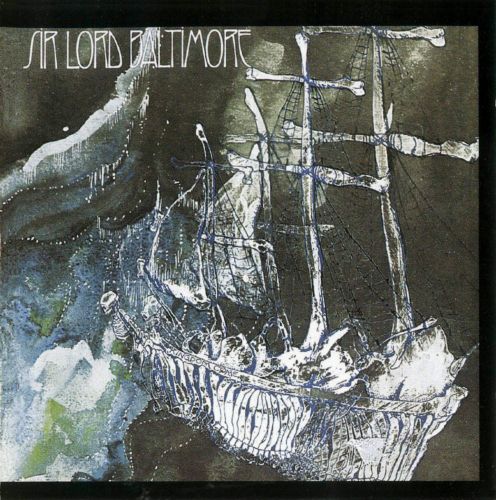

Label: Mercury
Catalog#: 314 522 241-2
Rumbling, generic hard rock/metal, the record's primary distinction being that it was one of the first of its kind. Touches like the harpsichord on the ballad "Lake Isle of Innersfree" made it clear that the band was interesting in more than bombastic boogie. But these weren't frequent or imaginative enough to make the album memorable. The group expanded to a quartet for their second album, with the addition of multi-instrumentalist Joey Dambra. The compositions were somewhat stronger and more ambitious, reflecting a heavier progressive rock influence, although not enough to elevate the lumbering approach and material to anything especially notable. The reissue combines both of their albums onto one CD, with the tracks rearranged in the order in which they were originally intended to be heard.
When the subject of heavy metal pioneers comes up (and one gets past the obvious bands like Black Sabbath, Led Zeppelin, and Deep Purple), several lesser-known but still remembered bands are invariably mentioned, and one of them is Sir Lord Baltimore, who hailed not from Baltimore but from New York. The formed in the late 60's and managed two albums before giving it up (confusingly, the self-titled album is their second, not first). Given that these were released in 1970-1971, one shouldn't expect modern crushing guitars, but this was pretty heavy stuff for the time (particularly the debut), a wild, psychedelic hard rock sound that occasionally brings to mind early Budgie as well as the aforementioned Zep. They may have been the first hard rock band whose drummer was their lead singer, still a rarity in heavy metal. When modern stoner bands are referenced as "70s-influenced", this is the kind of band they're referring to
John Garner (vocals, drums)
Gary Justin (bass, vocals)
Louis Dambra (guitar) Kingdom Come
Joey Dambra (guitar) Sir Lord Baltimore